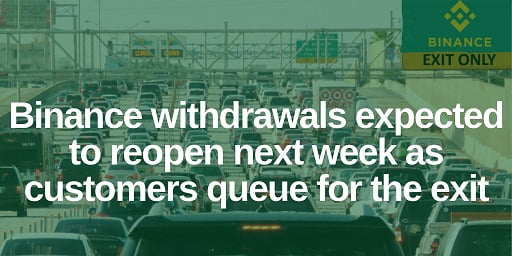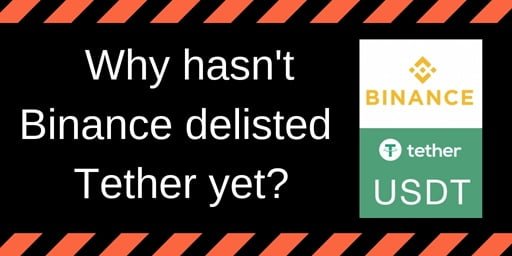Crypto Exchanges
Cryptocurrency Exchanges: The Gateways to the Digital Asset Market
Cryptocurrency exchanges play a pivotal role in the world of digital assets, acting as the primary platforms where traders, investors, and enthusiasts can buy, sell, and trade cryptocurrencies. These exchanges serve as intermediaries between buyers and sellers, facilitating the seamless exchange of digital currencies like Bitcoin (BTC), Ethereum (ETH), and thousands of other altcoins. With the rapid growth and adoption of cryptocurrencies in recent years, cryptocurrency exchanges have become essential players in the broader crypto ecosystem.
This article explores the concept of cryptocurrency exchanges, how they operate, the types of exchanges available, their benefits, and the risks associated with using them.
What is a Cryptocurrency Exchange?
A cryptocurrency exchange is a digital platform that allows users to exchange one cryptocurrency for another or to trade cryptocurrencies for traditional fiat currencies like the U.S. dollar, euro, or yen. These exchanges function similarly to stock exchanges, where buyers and sellers meet to exchange financial assets. However, instead of stocks and bonds, cryptocurrencies are traded on these platforms.
There are two main categories of cryptocurrency exchanges: centralized exchanges (CEXs) and decentralized exchanges (DEXs). Each type has its distinct characteristics, benefits, and limitations.
Centralized Exchanges (CEXs)
Centralized exchanges are the most common type of cryptocurrency exchange. In this model, a central authority or company operates the platform, acting as the intermediary between buyers and sellers. Users deposit their funds (both cryptocurrencies and fiat currencies) into accounts held by the exchange, and the exchange manages the order book and executes trades on behalf of its users.
Some of the most popular centralized exchanges include Binance, Coinbase, Kraken, and Bitfinex. These exchanges often provide a user-friendly experience with features such as advanced charting tools, order types (e.g., limit orders, market orders), and high liquidity, which makes them attractive to both new and experienced traders.
How Centralized Exchanges Work
Centralized exchanges operate by matching buy and sell orders from users. When a user places an order to buy or sell a specific cryptocurrency, the exchange’s order book matches that order with an opposite order (i.e., a buy order with a sell order). Once a match is found, the transaction is completed, and the user’s balance is updated accordingly.
The exchange typically charges fees for executing trades, which may be fixed or based on the trading volume. These fees can vary depending on the platform and the type of trade, with discounts often available for higher-volume traders or those using the exchange’s native token (such as Binance Coin on Binance).
Benefits of Centralized Exchanges
Ease of Use: Centralized exchanges often have a user-friendly interface that is easy for beginners to navigate.
High Liquidity: Due to their popularity and large user bases, CEXs tend to offer higher liquidity, allowing for faster and more efficient trades.
Fiat-to-Crypto Trading: Many centralized exchanges allow users to trade cryptocurrencies for fiat currencies (e.g., USD, EUR), making them more accessible for beginners who want to enter the crypto market.
Security Features: Centralized exchanges usually implement robust security measures, such as two-factor authentication (2FA), cold storage, and insurance against cyberattacks to protect users’ funds.
Risks of Centralized Exchanges
Custodial Risks: Since users are required to deposit their funds into the exchange’s custody, there is a risk that the exchange could be hacked, mismanaged, or become insolvent, leading to potential loss of funds.
Regulatory Issues: Centralized exchanges are often subject to strict regulations in various jurisdictions. This can result in exchanges being forced to shut down or restrict access to certain users, particularly in countries with unfavorable cryptocurrency laws.
Privacy Concerns: Centralized exchanges typically require users to complete Know Your Customer (KYC) procedures, which may involve submitting personal identification documents. This can compromise user privacy.
Decentralized Exchanges (DEXs)
Decentralized exchanges (DEXs) operate without a central authority or intermediary. Instead, these platforms leverage smart contracts and blockchain technology to facilitate peer-to-peer (P2P) trading. DEXs allow users to trade directly with one another, with the exchange’s smart contract automatically matching buy and sell orders. Unlike centralized exchanges, users retain control over their private keys and funds, making DEXs a more secure option for those who prioritize decentralization and privacy.
Some well-known DEXs include Uniswap, SushiSwap, and PancakeSwap, which are built on top of the Ethereum and Binance Smart Chain (BSC) blockchains.
How Decentralized Exchanges Work
In a decentralized exchange, users interact with a smart contract, which is a program running on the blockchain. When a user wants to trade a cryptocurrency, they send their assets to the smart contract, which then executes the trade with another user who wants to trade the opposite asset. The trade is finalized on the blockchain, and the assets are exchanged directly between users’ wallets.
DEXs typically utilize automated market makers (AMMs), which use algorithms to determine the price of assets based on supply and demand in liquidity pools. These pools are funded by users who provide liquidity in exchange for earning a share of transaction fees.
Benefits of Decentralized Exchanges
No Custodial Risk: Since users retain control of their private keys and funds, there is no risk of losing assets if the exchange is hacked or goes bankrupt.
Privacy and Anonymity: DEXs generally do not require KYC or personal information, allowing for greater privacy and anonymity.
Decentralization: DEXs align with the ethos of cryptocurrency by offering a decentralized, peer-to-peer way to trade digital assets without relying on a central authority.
Global Accessibility: DEXs can be accessed by anyone with an internet connection, regardless of geographical location, without restrictions based on government regulations.
Risks of Decentralized Exchanges
Lower Liquidity: DEXs often have lower liquidity compared to centralized exchanges, which can result in slippage (when the price changes between order placement and execution).
Complexity: DEXs can be more difficult to use for beginners, as they require users to have their own wallet and manage private keys.
Smart Contract Risks: Since DEXs rely on smart contracts, they are susceptible to coding bugs and vulnerabilities that could result in loss of funds or exploitation by malicious actors.
Key Features to Look for in a Cryptocurrency Exchange
When selecting a cryptocurrency exchange, users should consider several factors to ensure they are choosing the platform that best suits their needs:
Security: Ensure that the exchange employs strong security measures such as two-factor authentication (2FA), cold storage for user funds, and a history of security practices.
Fees: Different exchanges charge varying fees for trading, withdrawing, and depositing funds. Compare the fee structures to find the most cost-effective option.
Liquidity: Higher liquidity means that users can execute trades more quickly and at better prices. This is especially important for high-volume traders.
User Interface: A well-designed and easy-to-use interface can make a significant difference, particularly for new users. Look for an exchange with a simple and intuitive layout.
Available Cryptocurrencies: Not all exchanges offer the same range of cryptocurrencies. Check to see if the exchange supports the coins and tokens you wish to trade.
The Future of Cryptocurrency Exchanges
As the cryptocurrency market continues to grow, cryptocurrency exchanges will evolve to meet the changing needs of users. The trend toward decentralized exchanges is likely to intensify as more people prioritize security, privacy, and control over their assets. Additionally, centralized exchanges are expected to continue enhancing their offerings with advanced trading features, better security, and more regulatory compliance.
We may also see more institutional adoption of cryptocurrencies, which could lead to the development of more sophisticated and secure exchanges tailored to professional traders, hedge funds, and large investors.
Conclusion
Cryptocurrency exchanges are a cornerstone of the digital asset ecosystem, providing the platforms where individuals and institutions can trade cryptocurrencies. Whether through centralized exchanges, which offer high liquidity and ease of use, or decentralized exchanges, which provide enhanced privacy and security, these platforms are essential for the growth and accessibility of the cryptocurrency market. However, users must carefully weigh the benefits and risks associated with each type of exchange, considering factors such as security, fees, and liquidity before selecting the right platform. As the crypto space continues to expand, cryptocurrency exchanges will remain vital in facilitating the exchange and adoption of digital assets globally.

More coins delisted by exchanges
Another episode of our series ” Shitcoins Begone” with more coins delisted by cryptocurrency exchanges. This edition featuring more coins delisted by exchanges of major trading volumes Binance, and Bittrex. Where to buy Crypto More coins delisted by exchanges Coins delisted by Binance Fellow Binancians, At Binance, we periodically review each digital asset we list […]
read more
Etoro expands to the US market
Etoro expands to the US market: but do you own your crypto? The Israeli “investment” platform Etoro expands to the US market. Seems like a great thing for residents of the 32 states their US trading platform and wallet encompasses right? Well, perhaps not right now… Etoro expands to the US market: but do you […]
read more
Binance Exchange Review (2019) – Fees, Functions, Safety, and Reviews
Binance is a leading cryptocurrency exchange with the largest trading volume. It has several uniquely featured varieties such as Binance, Binance US, Binance Jersey, and Binance DEX. Following its successful ICO in 2017 and subsequent launch, the exchange seems to have made all the right moves to position itself as “the native crypto-trader’s exchange”. Binance […]
read more
Bitfinex Ordered By UK Court Last Month to Freeze Extorted Bitcoin Funds
New reports have emerged about the $865,000 in BTC transferred to Bitfinex exchange. The sum is suspected to be part of a ransomware payment made by a company in October 2019. As per the latest news, the commercial court of England and Wales high court ordered Bitfinex to freeze all the suspected ransomware funds ($865,000 […]
read more
BREAKING: Upbit hacked for 342,000 ETH, Massive TRX & XLM moves also
Upbit has reportedly been hacked for 342,000 ETH in recent hours. Notably a large number of TRX and XLM transfers have also moved out of Upbit and into Bittrex however Upbit have not made any statements on these additional moves as yet. Twitter is awash with Exit Scam rumours but it is more likely that […]
read more
Binance withdrawals expected to reopen next week as disgruntled customers prepare exodus
Binance, consistenty the worlds leading cryptocurrency exchange by Tether USDT “trading” volume is set to reopen withdrawals early next week. A week is a long time in crypto though and memories are not as short as some might hope: Binance was “hacked” for roughly the same amount of cryptocurrency as they were allegedly “hacked” for […]
read more
Why hasn’t Binance delisted Tether USDT yet?
Tether, or USDT, is a currency traded on many crypto exchanges under the nomer of “stablecoin” has come in for much criticism recently (well pretty much always). With public sentiment ranging from it’s a scam to “Meh its safe because their website says so” we ask the question how leading exchanges feel about it. […]
read more
Bitstamp Exchange Review 2019: Fees, Features and User Reviews
Bitstamp is one of the oldest and most esteemed cryptocurrency exchanges in the market today. Launched back in 2011, the exchange allows crypto investors to buy, sell and trade five different cryptocurrencies. Bitstamp is also hugely popular because they allow you to buy crypto using fiat currencies such as USD and EUR. The exchange aims […]
read more
Yet more cryptocurrency delistings at top exchanges – shitcoins begone!
Back in the good old days (if you can remember as far back as 2017) nearly any crytocurrency was fair game for exchanges, it did not seem to matter if the crypto had a project ongoing, a team behind it, a working product, a testnet or even a use case. Thankfully for the long term […]
read more
Crypto exchange Binance announces all listing fees will be donated to charity
Fellow Binancians, Binance will make a change to our listing fee policy. Starting immediately, and going forward, we will make all listing fees transparent and donate 100% of them to charity. Project teams will still propose the number they would like to provide for a “listing fee,” or now more appropriately called a “donation.” Binance […]
read more
Bitpanda launch Bitpanda Global Exchange and BEST
Bitpanda, the Vienna based Cryptocurrency and Precious metals trading platform recently announced that Bitpanda launch Bitpanda Global Exchange and BEST. With around 1 million registered users, Bitpanda has been expanding their operations since their launch in 2014. The current Bitpanda platform offers broker like services for people to buy and sell (and store) cryptocurrencies, fiat […]
read more
Coinbase releases new list of 31 cryptocurrencies it is exploring
Today 7th December 2018 Coinbase has released a PR statement outlining their intention to possibly adopt more cryptocurrencies at some point in the future in some jurisdictions. Cryptocurrencies being considered include Cardano, NEO, OmiseGo, Stellar and XRP. Press Release: Coinbase continues to explore support for new digital assets We are continuing to explore the addition […]
read more
Blockstream & Fidelity announce environmentally disastrous Bitcoin mining pool
It is so strange to see seemingly normal folks gleefully rubbing their hands together upon seeing an announcement of the environmentally disastrous Bitcoin mining expansion by Blockstream and Fidelity. The energy wasted performing Bitcoin mining is already reportedly at the levels of a country like Switzerland The energy, raw materials, pollution and waste used to […]
read moreExchanges supporting the Bitcoin Cash (BCH) hardfork
On the 15th November 2018, Bitcoin Cash will undergo a hard fork as per this announcement and we will update you with the sites that are supporting this hard fork, complete with the official press release confirmations. List of Exchanges supporting the bitcoin cash (bch) hard fork: Binance Coinbase Okex: Huobi: EXX: Bibox: Upbit: Bittrex: Press […]
read more
OKEx Delisting of 58 Trading Pairs & 2 Tokens
OKEx, one of the leading global cryptocurrency exchanges, has announced the delisting of 58 trading pairs due to low liquidity as well as the delisting of both READ and Bytecoin (BCN). OKEx Oct 25, 2018 – Delisting of READ READ token team has applied for delisting and we have accepted the application. We will delist […]
read more